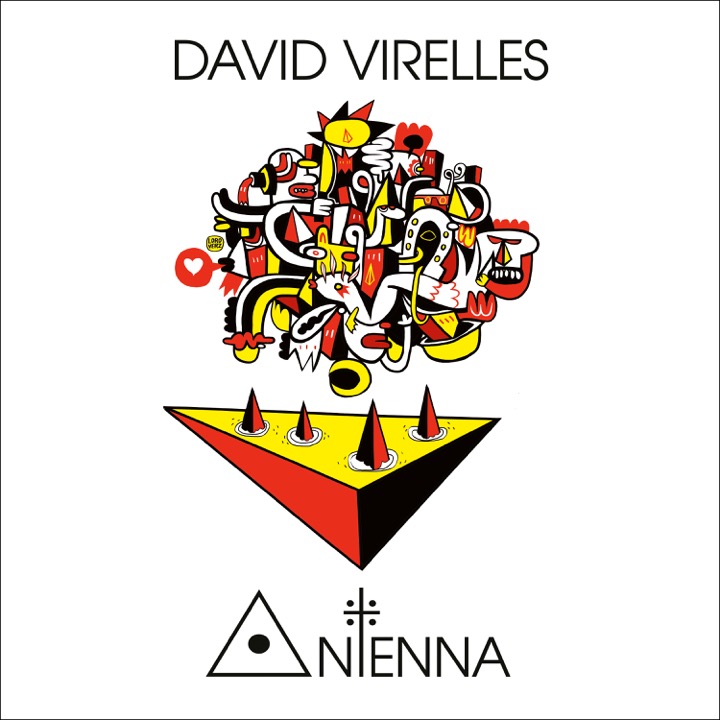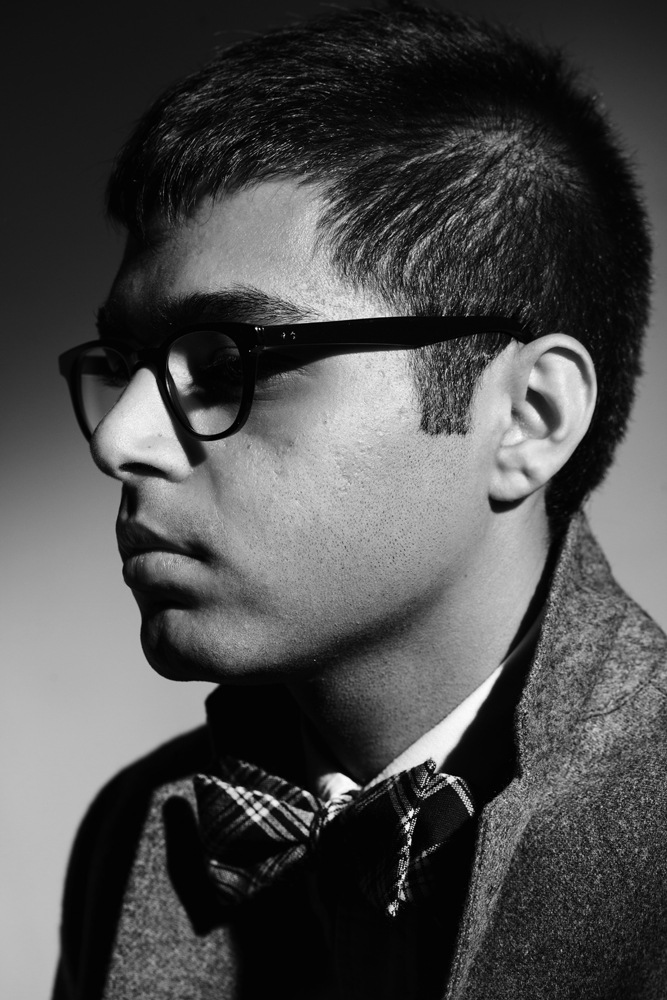Dec
09
with Marcus Gilmore Group, Rafiq Bhatia & special guests
Fri December 9th, 2016
7:30PM
Main Space
Minimum Age: 18+
Doors Open: 6:30PM
Show Time: 7:30PM
Event Ticket: $15
Day of Show: $20
Photo Credit: Vincent Oshin

Ticketing Policy
TABLE SEATING POLICY
Table seating for all seated shows is reserved exclusively for ticket holders who purchase “Table Seating” tickets. By purchasing a “Table Seating” ticket you agree to also purchase a minimum of two food and/or beverage items per person. Table seating is first come, first seated. Please arrive early for the best choice of available seats. Seating begins when doors open. Tables are communal so you may be seated with other patrons. We do not take table reservations.
A standing room area is available by the bar for all guests who purchase “Standing Room” tickets. Food and beverage can be purchased at the bar but there is no minimum purchase required in this area.
All tickets sales are final. No refund or credits.
4
David Virelles: Antenna

David Virelles official site | David Virelles on Facebook | David Virelles on Twitter
Named “#1 Rising Star” in the Piano category in DownBeat Magazine’s Critics Poll in 2015, Cuban born pianist/ composer David Virelles grew up in a musical home. He started studying music at seven, as well as being exposed to the rich Cuban musical traditions.
The Brooklyn – based Virelles, who once became the first recipient of the Oscar Peterson award, has performed or recorded with Ravi Coltrane, Henry Threadgill, Román Díaz, Tomasz Stanko, Wadada Leo Smith, Jane Bunnett and The Spirits Of Havana, Dewey Redman, Sam Rivers, Steve Coleman, Andrew Cyrille, Hermeto Pascoal, José Luis Quintana “Changuito”, Stanley Cowell, Chucho Valdés, Paul Motian, Chris Potter, Mark Turner, Tom Harrell, Milford Graves, Alberto Lescay, among others.
Virelles’ album Continuum (on the New York label Pi Recordings) made several “Best Of The Year” lists in 2012, being selected #1 in The New York Times. His next album Mbòkó, released in 2014 on the Munich label ECM also ended up in virtually every “Best Of The Year” list, including The New York Times, NPR, ITunes, The Village Voice, DownBeat Magazine, among other sources.
About David Virelles’ Antenna:
DAVID VIRELLES With his most recent album, “Mbòkó,” Mr. Virelles delivered one of the most intoxicating jazz albums of 2014. His follow-up turns out to be not a full album but rather a five-track EP, “Antenna,” available only on vinyl and in digital form. The style of the music is electroacoustic, heavily reliant on samples and synths, and the personnel is serious, featuring brilliant peers like the drummer Marcus Gilmore alongside wise elders like the alto saxophonist Henry Threadgill and the vocalist Román Díaz. ECM
David Virelles: acoustic piano, Hammond B3 organ, Roland JUNO-6, Vermona electric piano, Wurlitzer electric piano, prepared piano, programming, samples; Alexander Overington: electronics, samples, cello; Henry Threadgill: alto saxophone; Román Díaz: vocals; Marcus Gilmore: drums, electronic percussion; Rafiq Bhatia: guitar; Etián Brebaje Man: vocals; Mauricio Herrera: percussion; Los Seres: a fictional percussion ensemble, created and programmed by David Virelles
The music of Cuban-born, Brooklyn-based pianist David Virelles conjures a hallucinatory world in which ancient Afro-Cuban rhythms and ritual reverberate in the here and now. His latest ECM offering is Antenna, music attuned to a timeless rhythmic-cultural current even as it pulses with a vibrantly urban, modernist energy. Antenna – a six-track, 22-minute EP released exclusively on vinyl and digitally – sees Virelles channel Afro-Cuban percussion into an electro-acoustic, almost psychedelic swirl, one that melds jazz improvisation and organic grooves with digital refraction, shadowy synthesizers, otherworldly field recordings and Cuban street poetry. Antenna is an undulating, throbbing, dizzying dream of sound.
Mbòkó, Virelles’s ECM leader debut from 2014, featured in Best Of The Year lists in The New York Times, NPR, iTunes and The Village Voice, among others. The Guardian described it as “a jazz-infused world-music project beyond categories,” adding: “Virelles looks set to make big differences in contemporary music for years to come.”
Marcus Gilmore Group

Marcus Gilmore on Facebook | Marcus Gilmore on twitter | Marcus Gilmore on Instagram
Marcus Gilmore (born 1986) was inspired by the music of his grandfather, legendary jazz drummer Roy Haynes, who gave him his first set of drums at age 10. He is a graduate of the LaGuardia High School of Music, Art and Performing Arts in New York City and is currently attending the Manhattan School of Music. Marcus received the Wynton Kelly Foundation Award, the Wyoming Seminary PAI Best Instrumentalist Award, the Essentially Ellington Best Drum Solo Award, Vail Jazz Festival Ella Fitzgerald Scholarship, and the Brubeck Institute Summer Jazz Colony. He has performed at the Monterey Jazz Festival, the Monterey High School Jazz Band Japan Tour and the Gibson/Baldwin GRAMMY High School Jazz Ensembles. In 2003, Marcus performed at the 28th International Jazz Festival in Bern, Switzerland, as part of Clark Terry’s “Young Titans of Jazz.” The same band gave its New York debut at Birdland last fall. Gilmore also loves Afro-Cuban jazz and plays timbales and Latin percussion. He has performed with Steve Coleman, Ravi Coltrane, Vijay Iyer, John Clayton, Najee and others, and has sat in with Chick Corea, Ray Barretto, Branford Marsalis, Jimmy Heath, Wycliffe Gordon, and Roy Hargrove.
Rafiq Bhatia

Rafiq Bhatia official site | Rafiq Bhatia on Twitter | Rafiq Bhatia on Facebook | Rafiq Bhatia on Instagram | Rafiq Bhatia on YouTube
reaking English, the Anti- Records debut of New York composer and guitarist Rafiq Bhatia, seeks to shatter preconceptions about how much can be said without a word—and, for that matter, who can say it. Bhatia’s audacious first album as a producer sets out to challenge existing musical vocabulary with a language of its own.
In 2012, Bhatia issued two improvisation-driven recordings whose surreal sonics “set them miles apart from the vast majority of records by jazz musicians” (New York Times). These releases earned immediate acclaim; the Washington Postobserved, “Instead of haggling over jazz’s traditional perimeters, both recordings employ the sonic language of hip-hop and electronic composition to press toward a more interesting future.” But with his next project, Bhatia felt compelled to find a more personal path forward. For most of his listening life, he’d loved records in which familiar sounds were refashioned into wonderfully alien strains, where iconoclastic ideas met cutting-edge technology to yield a new lexicon. Making music like this would mean reaching beyond his six strings and customarily collaborative approach, especially his reliance on outside producers. To get where he needed to go, he would need to learn how to sculpt sound for himself.
It was during this period of reinvention that Bhatia joined Son Lux, a studio-centered project in which producer Ryan Lott used software to warp found sounds into dazzling electronic experiments. Son Lux afforded Bhatia the chance to record with the likes of Lorde and Sufjan Stevens, but, more important, it gave him the support he needed to develop his voice as a producer—the process that ultimately yielded Breaking English.
The resulting album ruptures the hermetic vernacular of ambient sculpturalism with the emotional intensity of avant-garde jazz, using the techniques of the former to achieve the feeling of the latter. Its language is centered on contrast, with opposing strains juxtaposed in order to throw each other into sharper relief—the organic feels more vibrant in the context of the mechanical, the otherworldly more ethereal in light of the ordinary. Throughout, Bhatia’s guitar is just one part of a teeming, much bigger picture. Tense violin, exhaled gospel vocals, ricocheting drums and foreboding bass also populate Breaking English, all characters in an enveloping piece of musical cinema.
Bhatia is the first-generation American son of Muslim immigrant parents who trace their ancestry to India by way of East Africa. Early influences such as Jimi Hendrix, John Coltrane, and Madlib—as well as mentors and collaborators including Vijay Iyer and Billy Hart—prompted him to see music as a way to actively shape and represent his own identity, not limited by anyone else’s prescribed perspective. Bhatia’s embrace of the electronic realm bolsters his ability to express hybridity. At times, he uses the studio to destabilize, twisting the stereotypes of Indian music he heard as a child into noise beyond recognition. But frequently, he exaggerates the human qualities of the sound he mines, conveying intimacy and tension through elements many producers would scrub clean.
All told, Bhatia seamlessly integrates dozens of different ideas throughout Breaking English. Take the title track, a marvelous chimera of deconstructed soul, where skittering drums dodge explosions of white noise as a detuned choir gasps for air. Trips to the Great Rift Valley of Africa and the mosques of Istanbul inspired the swirl of sculpted noise that begins the album. His horror with the news of these last several American years and his empathy for the Black Lives Matter movement supercharge the menacing “Hoods Up.” A fascination with avant-garde cuisine actually helped to shape “The Overview Effect,” a breathtaking piece that expresses the overwhelming fragility of the Earth as seen from outer space. The contaminated orchestra of “Olduvai II — We Are Humans With Blood In Our Veins” bottles the nightmare of waking up brown in America on November 9, 2016.
From start to finish, Breaking English suggests one very deep breath, one instant capable of carrying so much. Beauty, violence, death, rebirth—it’s all tucked into the two-movement “Perihelion,” an eight-minute descent into the sun that uses distance and perspective to ponder the line where what dazzles us can destroy us, where something so sustaining can turn sinister. That Icarus-like enticement speaks to Breaking English, an album that required an already-accomplished musician to abandon what he knew and test his own limits. That risk rewards repeatedly here, on a record that funnels a universe of anxiety, hope, and inspiration into one singularly provocative and mesmerizing statement.
Anti- Records will release Breaking English on April 6, 2018.
special guests


